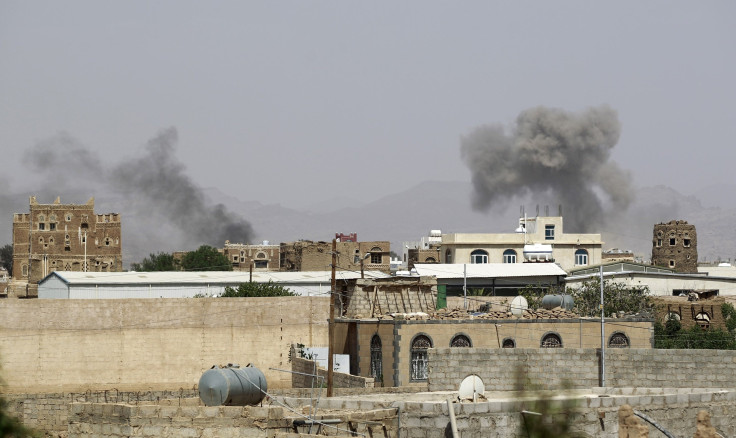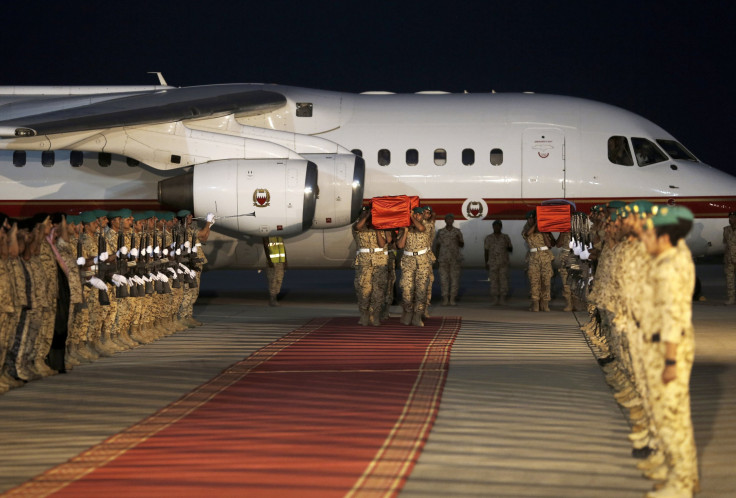Yemen Crisis: Egypt, Qatar Send Ground Troops To Battle Houthi Rebels With Saudi Arabia

BEIRUT -- For the first time since Saudi Arabia formed a 10-country coalition in March to battle the Yemeni Houthi rebels, Egypt and Qatar have expanded their involvement -- previously limited to airstrikes -- by sending hundreds of ground troops to Yemen this week. Nine coalition members are expected to have forces fighting on the ground alongside Saudi troops before the end of the week, according to Yemen local news.
Egypt, which has one of the strongest armies in the Arab world, sent 800 troops armed with tanks and military transport vehicles into the war-torn country Tuesday night. The day before, Qatar sent 1,000 troops into Yemen. Morocco, Sudan, Jordan and Kuwait are expected to follow suit and join the thousands of troops already on the ground from Saudi Arabia, Bahrain and the United Arab Emirates. Some reports claim that many of the countries listed had already sent troops into Yemen as of Wednesday.
"We have sent these forces as part of Egypt's prominent role in this alliance. ... The alliance fights for the sake of our brotherly Arab states, and the death of any Egyptian soldier would be an honour and considered martyrdom for the sake of innocent people," a senior Egyptian military source told Reuters.
This influx came after the Houthis reportedly launched a Russian-made missile into a coalition-controlled base Friday, killing at least 45 Emirati troops, five Bahrainis and 10 Saudis.
The attack marked "the largest loss of life” for the UAE military since 1971, “making the day the deadliest one so far for the coalition,” according to a report from the Soufan Group.

Troops were reportedly deployed to Yemen’s oil-rich Marib province, where Sunni tribesmen and militants loyal to al Qaeda have also been fighting the Houthi rebels. The complex web of allegiances on the ground in Yemen’s tribal-dominated areas will likely be an obstacle for the coalition’s new ground war strategy.
“There is no geopolitical strategy or even a battle plan that can survive long on the ground in Yemen,” according to a report from the Soufan Group. “Success in one part of the rugged country yields to losses in another.”
Saudi Arabia launched a coalition to battle the Iran-backed Houthi rebel groups in March after the rebels seized the capital Sanaa and forced U.S.- and Saudi-backed Yemeni President Abed Rabbo Mansour Hadi to resign. In addition to the nine countries involved in ground operations, Somalia is also a member of the coalition. The U.S. is providing logistical support and intelligence to Saudi Arabia, but it is not militarily engaged.
Airstrikes and fighting have turned Yemen into a “humanitarian crisis,” according to the United Nations. More than 4,500 people have been killed in the conflict. Nearly 2,000 of them were civilians, 400 of which were children. That is an average of eight children killed or injured every day, according to Unicef.
© Copyright IBTimes 2025. All rights reserved.






















